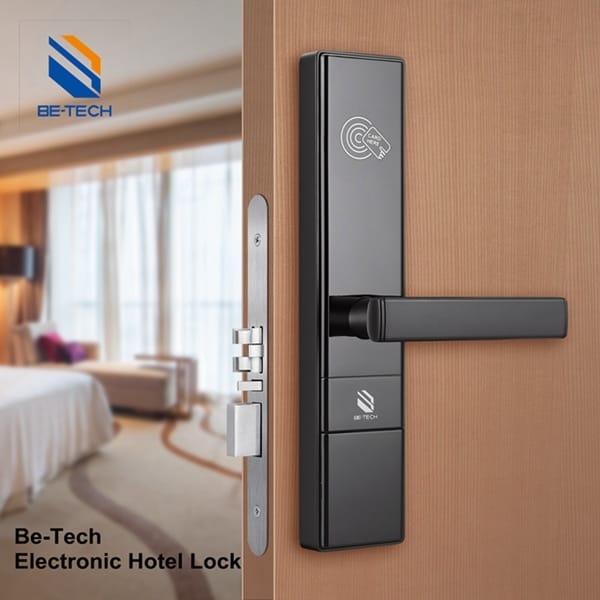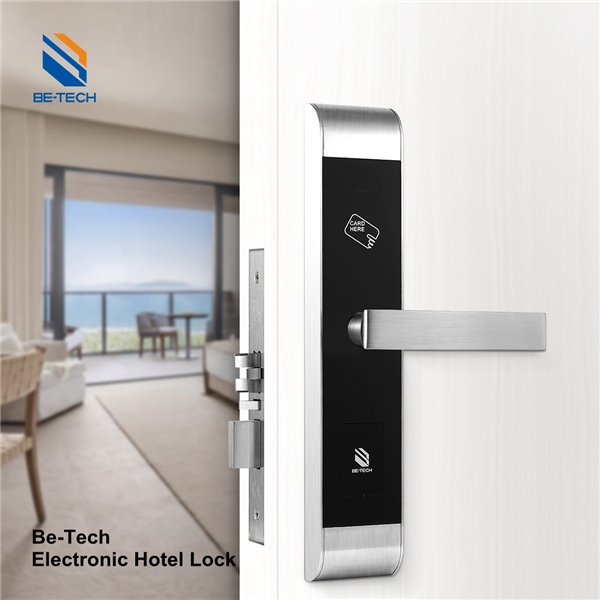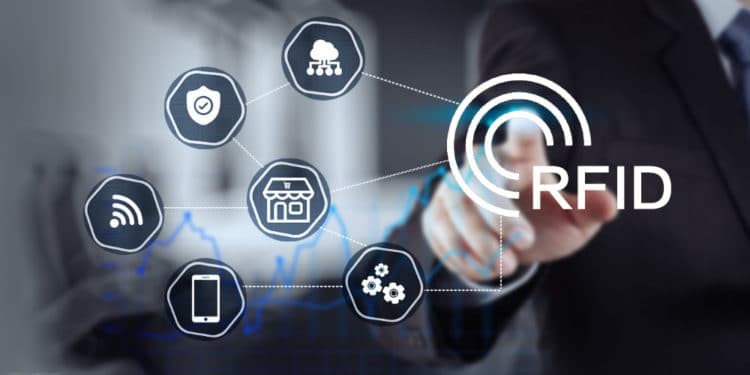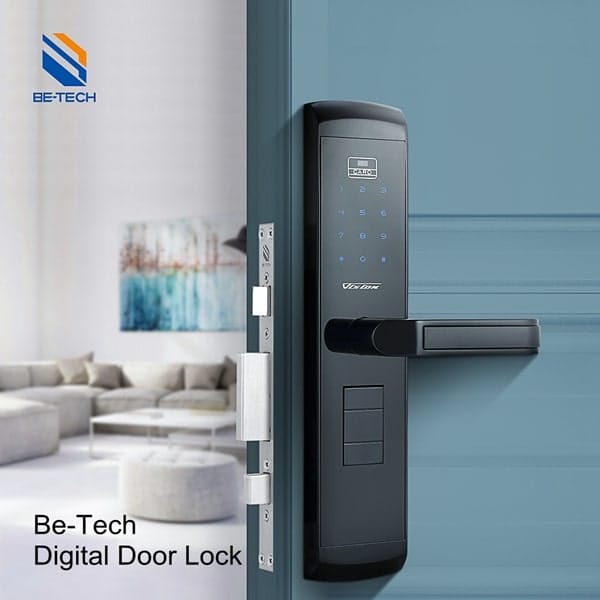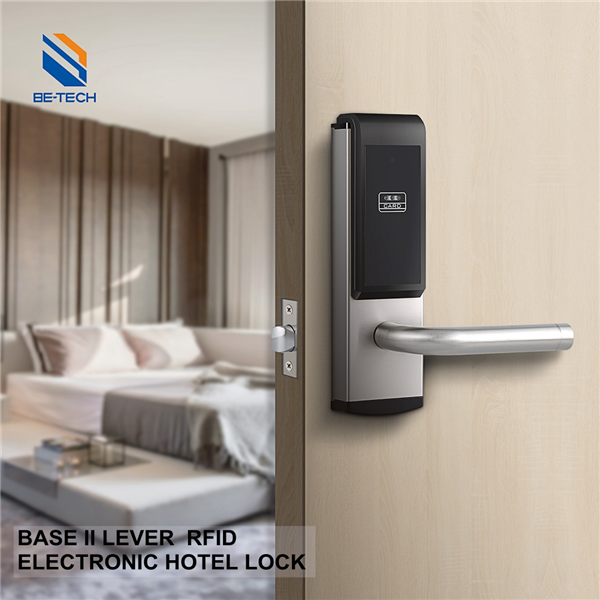In today’s rapidly evolving hospitality landscape, hotel door locks represent far more than simple entry mechanisms—they are sophisticated security systems that directly impact guest safety, operational efficiency, and overall guest satisfaction. As we navigate through 2025, the transformation of hotel security technology continues to accelerate, with innovative locking solutions offering unprecedented levels of protection and convenience. Drawing from the latest industry developments and expert insights, this comprehensive guide explores four cutting-edge hotel door lock innovations that are redefining guest safety standards.
Why Advanced Hotel Door Locks Matter in 2025
Hotel room door locks serve as the critical first line of defense in protecting guests and their belongings. Beyond basic security, today’s innovative locking systems contribute significantly to guest experience and operational workflow. According to hospitality security statistics, hotels with advanced locking systems report up to 67% fewer security incidents and significantly higher guest satisfaction scores related to safety perceptions.
Modern travelers now expect technological convenience alongside robust security. The global hotel lock market is projected to reach $1.8 billion by 2026, with smart and contactless solutions leading growth. This evolution reflects a fundamental shift in how properties approach guest safety—moving from reactive security measures to proactive, technology-driven protection systems.
1. RFID Hotel Door Locks: Enhanced Security Through Radio Frequency Technology
RFID (Radio-Frequency Identification) locks represent a significant advancement over traditional magnetic stripe cards, utilizing electromagnetic fields to transfer data securely between the lock and an embedded RFID chip in keycards, wristbands, or fobs.
How RFID Hotel Locks Work
RFID door locks operate via contactless technology that transmits encrypted credentials when an authorized card or device is held near the reader. Unlike magnetic stripe cards, RFID credentials are extremely difficult to duplicate and resist demagnetization, making them substantially more secure for hotel environments.
Be-Tech’s VISUAL RFID Door Lock series exemplifies this technology’s evolution, featuring sleek aluminum designs specifically engineered for modern and boutique hotels. These locks seamlessly integrate fashion-forward aesthetics with robust security features, including:
- Completely sealed contactless modules for enhanced durability
- High-security stainless steel mortise lockcase (available in ANSI, AUS, and EURO versions)
- 3-point stainless steel latch construction with anti-friction mechanism
- 20mm throw high-strength deadbolt
- Panic release function for emergency situations
- ADA compliance for guests with physical disabilities
- Future-proof reprogramable FLASH RAM lock memory
- Extended battery life (up to one year with standard AA batteries)
- Comprehensive audit trail capabilities (414 events)
Implementation Considerations for RFID Systems
When implementing RFID locking systems, properties should consider several key factors to maximize security and operational benefits:
- Integration capabilities: Ensure compatibility with existing Property Management Systems (PMS) for seamless check-in/check-out processes
- Credential management: Develop protocols for issuing, tracking, and deactivating RFID credentials
- Staff training: Comprehensive training on system operation, troubleshooting, and security protocols
- Backup systems: Implement mechanical override options for emergency situations
According to a comprehensive study on hotel security technologies, RFID systems reduce key-related issues by approximately 73% compared to traditional magnetic stripe systems, while simultaneously enhancing guest perception of security and technological sophistication.
2. Mobile Access Hotel Locks: Keyless Entry via Smartphone
Mobile access technology represents perhaps the most transformative innovation in hotel door security, enabling guests to use their smartphones as digital room keys through dedicated apps or mobile wallets.
The Evolution of Mobile Access Systems
Mobile access locks leverage Bluetooth Low Energy (BLE) technology to establish secure connections between smartphones and door locks. When a guest books a room, digital credentials are securely transmitted to their mobile device. Upon arrival, guests can bypass the front desk entirely and proceed directly to their rooms, using their smartphones to unlock doors with a simple tap or proximity detection.
Key benefits of mobile access systems include:
- Contactless experience: Particularly valued in post-pandemic hospitality
- Streamlined check-in: Elimination of front desk queues and physical key handovers
- Enhanced security: Encrypted digital credentials that cannot be duplicated
- Personalization opportunities: Ability to send customized messages and offers with mobile keys
- Operational efficiency: Reduced costs associated with physical keycards and staff time
- Environmental sustainability: Elimination of plastic keycard waste
According to Hotel Tech Report’s analysis of contactless technologies, properties implementing mobile access solutions report average increases of 8.5 points in guest satisfaction scores related to check-in experiences.
Real-World Implementation Examples
Be-Tech’s advanced mobile access solutions demonstrate the practical application of this technology, offering:
- Seamless integration with major hotel PMS systems
- Multi-credential support (mobile keys alongside RFID options)
- Comprehensive security protocols with end-to-end encryption
- Cloud-based management for remote administration
- Detailed access logs and security analytics
When implementing mobile access systems, hotels should consider:
- App development or third-party integration: Whether to develop a proprietary app or leverage existing platforms
- Network infrastructure: Ensuring reliable wireless connectivity throughout the property
- Staff protocols: Developing procedures for guests who prefer traditional keys or experience technical difficulties
- Data security compliance: Adhering to privacy regulations regarding digital credential management
3. Biometric Hotel Door Locks: Advanced Authentication Through Unique Physical Characteristics
Biometric authentication represents the frontier of hotel security technology, using unique physical characteristics—such as fingerprints, facial recognition, palm veins, or iris patterns—to verify identity and grant room access.
The Science Behind Biometric Authentication
Biometric door locks capture, analyze, and store mathematical representations (not actual images) of unique physical characteristics. When a guest attempts to access their room, the system compares their presented biometric data against stored templates to authorize entry.
This technology offers several exceptional advantages:
- Unparalleled security: Virtually impossible to duplicate or forge biometric identifiers
- Convenience: No physical credentials to carry or potentially lose
- Swift access: Rapid authentication in milliseconds
- Accessibility: Beneficial for guests who struggle with traditional keys or mobile technology
- Multi-factor capabilities: Can be combined with PINs or other credentials for enhanced security
Cutting-Edge Biometric Systems for Hospitality
The latest biometric solutions showcased at CES 2025 demonstrate remarkable advances in this technology, including:
- Lockly Vision Prestige Duet Series, featuring facial recognition, video doorbell, and AI-powered camera capabilities
- Philips 5000 Series Video Palm Recognition Smart Lock, combining biometric palm vein recognition with HD video monitoring
Biometric systems require careful consideration regarding:
- Privacy regulations: Compliance with data protection laws varies by region
- Fallback mechanisms: Secondary access methods for system failures
- Cultural sensitivity: Guest comfort levels with biometric data collection
- Data security: Robust encryption and secure storage of biometric templates
| Biometric Method | Security Level | User Convenience | Implementation Complexity | Cost Range (per door) |
|---|---|---|---|---|
| Fingerprint | High | Very High | Moderate | $350-$550 |
| Facial Recognition | Very High | Highest | High | $500-$950 |
| Palm Vein | Extremely High | High | High | $600-$1,100 |
| Iris Scanning | Ultra High | Moderate | Very High | $800-$1,400 |
4. Smart Locks with Keypad Entry: PIN-Based Access Control
Smart locks with keypad entry offer a versatile and reliable solution that bridges traditional and cutting-edge access technologies, enabling guests to unlock doors by entering unique PIN codes.
Advantages of Keypad Entry Systems
Keypad entry systems provide several distinct benefits:
- Hardware simplicity: No physical credentials required
- Operational flexibility: Easy PIN generation and management
- Self-service friendly: Ideal for contactless check-in scenarios
- Multi-use capability: Different PINs for guests, cleaning staff, and maintenance
- Enterprise PMS integration: Compatible with major property management systems
Be-Tech’s keypad entry solutions feature advanced capabilities including:
- Time-restricted PINs that automatically expire after checkout
- Anti-tamper protection with lockout after multiple incorrect attempts
- Emergency override capabilities for property management
- Detailed access logs for security monitoring
- Low battery warnings and emergency power options
Implementation Best Practices
For optimal deployment of keypad entry systems, hotels should consider:
- PIN distribution protocols: Secure methods for communicating codes to guests
- Code complexity requirements: Balancing security with memorability
- Cleaning procedures: Regular sanitization of keypads in high-traffic properties
- Visibility considerations: Ensuring adequate lighting for nighttime access
Implementation Strategies for Advanced Hotel Door Locks
Successful implementation of advanced door lock systems requires careful planning and strategic deployment. Hotels considering upgrades should follow this comprehensive framework:
1. Conduct a Security Needs Assessment
Begin with a thorough evaluation of your property’s specific requirements:
- Guest demographics and preferences: Consider your typical guest profile and their technological comfort level
- Existing infrastructure: Assess compatibility with current systems
- Security history: Analyze past incidents to identify vulnerability patterns
- Operational workflows: Determine how new systems will impact check-in procedures and staff responsibilities
- Budget constraints: Balance initial investment against long-term operational savings
2. Select the Right Technology Mix
Most successful hotel security implementations utilize a hybrid approach, combining multiple access technologies to accommodate different guest preferences and scenarios:
- Primary system: Select your main access technology (typically RFID or mobile)
- Secondary options: Implement backup methods for various guest needs
- Staff access protocols: Develop separate systems for employee access
- Emergency overrides: Ensure mechanical key options for system failures
3. Partner with Reputable Suppliers
The selection of lock manufacturers and system integrators is critical to implementation success:
- Proven hospitality experience: Prioritize vendors with extensive hotel installations
- Service and support: Evaluate warranty terms and technical assistance availability
- Integration capabilities: Ensure compatibility with your property management system
- Future-proofing: Assess the manufacturer’s technology roadmap and upgrade path
Be-Tech Hotel Locks, with over 30 years of industry experience and installations in thousands of properties worldwide, represents an example of a specialized hotel lock supplier offering comprehensive support and hospitality-specific expertise.
4. Develop a Comprehensive Training Program
Staff education is essential for maximizing the benefits of advanced locking systems:
- Front desk procedures: Thorough training on credential issuance and management
- Troubleshooting protocols: Clear procedures for handling guest access issues
- Security incident response: Guidelines for addressing potential breaches
- Maintenance requirements: Regular system checks and preventative care
5. Create Clear Guest Communication
Educate guests about new access technologies through multiple channels:
- Pre-arrival communications: Information about access options in confirmation emails
- Check-in guidance: Clear instructions during the arrival process
- In-room materials: Simple visual guides for technology operation
- Staff assistance: Trained personnel available to assist with questions
The Future of Hotel Door Security: Emerging Trends for 2025 and Beyond
The hotel door lock landscape continues to evolve rapidly, with several emerging trends poised to reshape guest security in the coming years:
Integration with Broader Smart Hotel Ecosystems
Advanced door locks are increasingly becoming central hubs within comprehensive smart room ecosystems:
- Automated environment control: Door lock triggers personalized room settings upon entry
- Occupancy management: Real-time room status monitoring for housekeeping optimization
- Energy efficiency: Automatic systems deactivation when rooms are unoccupied
- Guest service coordination: Lock status informing service delivery timing
AI-Enhanced Security Analytics
Artificial intelligence is transforming how hotel security systems detect and respond to potential threats:
- Behavioral analysis: AI algorithms identifying unusual access patterns
- Predictive maintenance: Anticipating lock failures before they occur
- Automated security responses: Intelligent system reactions to suspicious activities
- Guest preference learning: Adapting access protocols to individual behavior patterns
Sustainability Considerations
Environmental impact is becoming a significant factor in lock technology selection:
- Energy-efficient designs: Extended battery life and low-power components
- Recyclable materials: Eco-friendly manufacturing processes
- Paperless processes: Digital credentials reducing paper waste
- Longevity-focused engineering: Durable systems designed for extended service life
Enhanced Accessibility Features
Inclusive design principles are driving innovations in access technology for guests with disabilities:
- Multi-sensory indicators: Visual, auditory, and tactile feedback systems
- Voice-activated controls: Hands-free operation capabilities
- Customizable interaction modes: Adaptable interfaces for different ability levels
- Remote assistance integration: Staff support options for guests requiring help
Conclusion: Balancing Innovation, Security, and Guest Experience
As hotel door lock technology continues its rapid evolution, properties must strategically balance cutting-edge innovation with practical security considerations and guest experience factors. The four key technologies examined—RFID systems, mobile access solutions, biometric authentication, and smart keypad locks—each offer distinct advantages that can be leveraged to create comprehensive security ecosystems tailored to specific property needs.
Successful implementation requires thoughtful assessment, careful vendor selection, and ongoing commitment to staff training and guest education. By embracing these advanced security technologies, hotels can simultaneously enhance physical protection, streamline operational workflows, and deliver the seamless, technology-enabled experiences that today’s travelers increasingly expect.
In the competitive hospitality landscape of 2025, advanced door lock systems represent not merely a security necessity but a significant opportunity for brand differentiation and guest experience enhancement. Properties that strategically invest in these technologies position themselves at the forefront of hospitality innovation while fulfilling their fundamental obligation to provide safe, secure accommodations for every guest.


